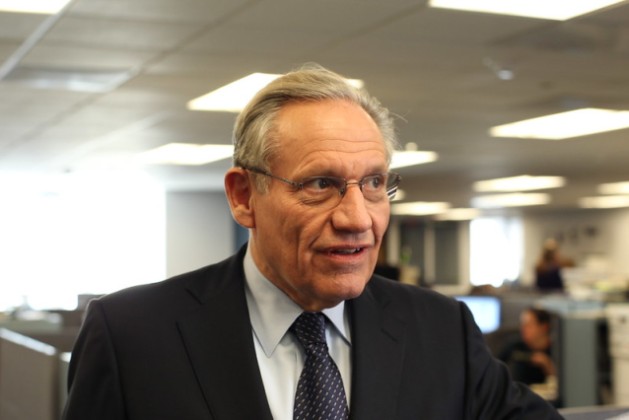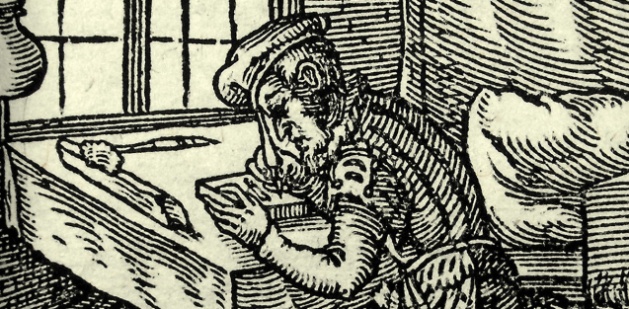
Al Giordano (via Facebook)
On Monday evening I received some sad news: Al Giordano, who was the political columnist at The Boston Phoenix in the mid-1990s, had died in Mexico, where he’d made his home for many years. The cause was lung cancer, according to retired Boston Globe editor Matt Storin, who was Al’s uncle.
For a time, I was Al’s editor at the Phoenix, so I had the honor of working with him directly. He was difficult and brilliant, a unique voice that we needed then and need even more now. Later I followed his journalism at NarcoNews.com, which covered the misguided U.S. war on drugs from the Mexican point of view. He kept up his political punditry as well, and trust me when I tell you that it was good stuff. He and I stayed in touch sporadically, and he had a standing invitation to speak to my students on one of his periodic forays to the States; sadly, we were never able to make that happen. Al was 64 at the time of his death.
Al wrote a vibrant 4,000-word essay about the importance of the Phoenix shortly after it folded in 2013. You can (and should) read it here. Below is a tribute to Al written by his friends at the Fund for Authentic Journalism, another one of Al’s projects. I don’t believe it’s still in existence, but if I find out otherwise, I’ll let you know. The tribute, by the way, was published in a friends-only post on Facebook, but his board has given people permission to share it publicly.
***
Al Giordano, 1959-2023
(En español abajo)
Al Giordano passed away Monday evening, July 10, in Mexico. He was at home, in his own bed, with friends at his side, as a hard rain came down on the land.
Al was a gifted journalist and organizer with a keen mind and the courage of his convictions. Those talents, and a lot of hard work and lived experience, allowed Al to seemingly see around the corners of history to place himself at the headwaters of seismic world change.
Al did this repeatedly over the decades, in the U.S., Latin America and beyond, often at great personal risk, but never without a sharp sense of strategy aimed at the goal. He was the John Reed of our era. He was there when the world shook to tell us why it was shaking.
Al was an active participant in some of the most consequential moments of political and social change of the last 50 years as an organizer, a journalist or an advisor. As a young organizer in the 1970s, he helped freeze the expansion of the nuclear power industry as part of the “Clamshell Alliance,” which staged successful anti-nuclear demonstrations at the then-proposed Seabrook nuclear power plant in New Hampshire. The campaign overcame great odds and ignited a “No Nukes” movement that inspired similar alliances and actions against proposed and existing nuclear power plants nationwide.
Al went on to work on John Kerry’s first Senate campaign, before becoming legendary organizer Abbie Hoffman’s apprentice in the trenches — working on organizing campaigns in Pennsylvania, Nicaragua and elsewhere. He was among the first U.S.-born journalists to document the Zapatista Army for National Liberation’s 1994 indigenous uprising.
To support that effort and to document the failed U.S. War on Drugs in Mexico and throughout Latin America, Al created the online newspaper Narco News. The trailblazing news service scored a historic victory for online press freedom in the United States when Citibank unsuccessfully sued Al in a New York court over his drug war coverage. In its ruling, the court established precedent extending the same freedom of speech protections to online journalists as enjoyed by traditional print media.
For over 14 years, and with the support and participation of dozens of collaborators, Al also ran a workshop for journalists and organizers to share strategies for the effective and strategic coverage of social movements, an effort that created effective networks with global reach among its participants, which remain active to this day. Al also garnered substantial attention for his prescient coverage of the “Obama paradigm shift” in the runup to the 2008 U.S. Presidential election, and he created an online manual for nonviolent revolution after his in-country coverage of the uprising against Egyptian dictator Hosni Mubarak in 2011.
Al’s death is a shock in the sense that he left us far too soon. But Al had been dealing with ongoing health issues for some time, even after beating back cancer several years ago. Death is never comforting, but it is relief for those enduring serious, chronic health problems. The journey, which includes both emotional and physical pain, is the hard part.
Al lived life hard and fast. That’s how it came at him. But every moment of it mattered to Al, as did winning the good fight. He literally changed the world with his organizing and journalism work. The list of his great accomplishments is long, and his impressive legacy only now launched on a journey of its own.
Even Al couldn’t outrun the reaper. None of us can. But damn, he gave life one hell of a good ride.
Al died on his own terms, still speaking his truth to power and working to organize other people to do the same, so that an even bigger truth rises. His work will live on far past his critics’ last gasps.
All we can do now is use our grief as inspiration for doing what Al would surely want us to continue doing — living authentically and in pursuit of a better world for all. We should also definitely find some time now to honor Al’s life in a manner that works for each of us, to celebrate what Al has left behind for us to build upon.
We all have to keep pushing forward for as long as time permits. Al once said as much, “Authenticity is not the easiest path in life, but it’s the only path that leads forward.”
Al Giordano ¡Presente!
Friends of Al
And the board of directors of the Fund for Authentic Journalism
Doug Wilson, President
Bill Conroy, Treasurer
Wendy Foxmyn, Fund Administrator
———————-
Al Giordano, 1960-2023
Al Giordano falleció la pasada noche del lunes 10 de julio en México. Estaba en su casa, en su propia cama, con amigos a su lado, mientras una fuerte lluvia caía sobre la tierra.
Al fue un periodista y organizador talentoso, con una mente acuciosa y el coraje de sus convicciones. Esas habilidades, junto con mucho trabajo arduo y experiencia vivida, permitieron que Al aparentemente vislumbrase los giros de la historia para situarse en la cabecera de transformaciones mundiales de gran impacto.
Al hizo esto en repetidas ocasiones a lo largo de las décadas, en los Estados Unidos, América Latina y más allá, a menudo enfrentando grandes riesgos personales, pero nunca sin un agudo sentido de la estrategia dirigido al objetivo. Fue el John Reed de nuestra era. Estuvo presente cuando el mundo tembló para contarnos por qué temblaba.
Al participó activamente en algunos de los momentos más trascendentales de cambio político y social de los últimos 50 años, ya sea como organizador, periodista o asesor. Como joven organizador en la década de 1970, ayudó a frenar la expansión de la industria de la energía nuclear como parte de la “Alianza Clamshell”, que llevó a cabo exitosas manifestaciones antinucleares en la entonces propuesta planta de energía nuclear de Seabrook en Nuevo Hampshire. La campaña superó grandes obstáculos e impulsó un movimiento “No Nukes” que inspiró alianzas y acciones similares contra plantas de energía nuclear propuestas y existentes en todo el país.
Posteriormente, Al trabajó en la primera campaña al Senado de John Kerry, antes de convertirse en el aprendiz del legendario organizador Abbie Hoffman en las trincheras, trabajando en campañas de organización en Pensilvania, Nicaragua y otros lugares. Fue uno de los primeros periodistas nacidos en Estados Unidos en documentar el levantamiento indígena del Ejército Zapatista de Liberación Nacional (EZLN) en 1994.
Para apoyar ese esfuerzo y documentar la fallida “Guerra Contra las Drogas” de Estados Unidos en México y toda Latinoamérica, Al creó el periódico en línea Narco News. Este innovador servicio de noticias obtuvo una histórica victoria para la libertad de prensa en línea en Estados Unidos cuando Citibank demandó infructuosamente a Al en un tribunal de Nueva York por su cobertura de la guerra contra las drogas. En su fallo, el tribunal sentó un precedente que otorga a los periodistas en línea las mismas protecciones de libertad de expresión que disfruta la prensa impresa tradicional.
Durante más de 14 años, y con el apoyo y la participación de docenas de colaboradores, Al también dirigió un taller para periodistas y organizadores con el fin de compartir estrategias para la cobertura efectiva y estratégica de los movimientos sociales; un esfuerzo que creó redes efectivas con alcance global entre sus participantes, que siguen activas hasta el día de hoy. Al también obtuvo una atención considerable por su presciente cobertura del “cambio de paradigma de Obama” en la antesala de las elecciones presidenciales de Estados Unidos de 2008, y creó un manual en línea para la revolución no violenta después de su cobertura presencial del levantamiento contra el dictador egipcio Hosni Mubarak en 2011.
La muerte de Al es impactante en el sentido de que nos dejó demasiado pronto. Sin embargo, Al llevaba un tiempo lidiando con problemas de salud persistentes, incluso después de haber vencido el cáncer hace varios años atrás. La muerte nunca es reconfortante, pero sí es un alivio para aquellos que sufren problemas de salud graves y crónicos. El viaje, que incluye tanto dolor emocional como físico, es la parte difícil.
Al vivió la vida intensa y rápidamente. Así fue como se le presentó. Pero cada momento fue importante para Al, al igual que ganar la buena batalla. Literalmente cambió el mundo con su trabajo de organización y periodismo. La lista de sus grandes logros es extensa, y su impresionante legado apenas comienza a emprender su propio viaje.
Ni siquiera Al pudo burlar a la parca. Nadie puede. Pero vaya que le dio a la vida un paseo impresionante.
Al murió en sus propios términos, aún diciendo su verdad al poder y trabajando para organizar a otras personas para que hagan lo mismo, para que surja una verdad aún más grande. Su obra vivirá mucho más allá de los últimos suspiros de sus detractores.
Lo único que podemos hacer ahora es tomar parte de nuestra tristeza y canalizarla en lo que Al seguramente querría que continuáramos haciendo: vivir auténticamente y buscar un mundo mejor para todos. Definitivamente también deberíamos encontrar algo de tiempo ahora para honrar la vida de Al, de la manera que funcione para cada uno, para celebrar lo que Al nos ha dejado para construir.
Tenemos que seguir empujando hacia adelante mientras el tiempo lo permita. Al alguna vez dijo: “La autenticidad no es el camino más fácil en la vida, pero es el único camino que conduce hacia adelante”.
Al Giordano ¡Presente!
Amigos de Al
Y la junta directiva
del Fondo para el Periodismo Auténtico
Doug Wilson, Presidente
Bill Conroy, Tesorero
Wendy Foxmyn, Administradora del Fondo









